Group Discussion for the Development of Peace Education Curriculum
HWPL carries out its Peace Education Initiative, which is formed through the Values of Peace based on the ‘Sanctity of Life’, ‘Loyalty and Filial Piety’, and ‘Co-Existence and Sustainability’, to cultivate and train children and students to become true citizens of peace. In order to prevent and solve the issues of extreme violence and the proliferation of persistent conflicts and disharmony, education is essential, as well as the executive power for its implementation, so that people are given the opportunity to adequately learn these values of peace.
The forum this year focused on confirming the possibility of truly realizing the spreading of a culture of peace through HWPL Peace Education and building solidarity for the joint development of related educational contents. It also discussed the role and duty of educators, schools, and educational institutions, which are the critical entities who will practically implement such education.
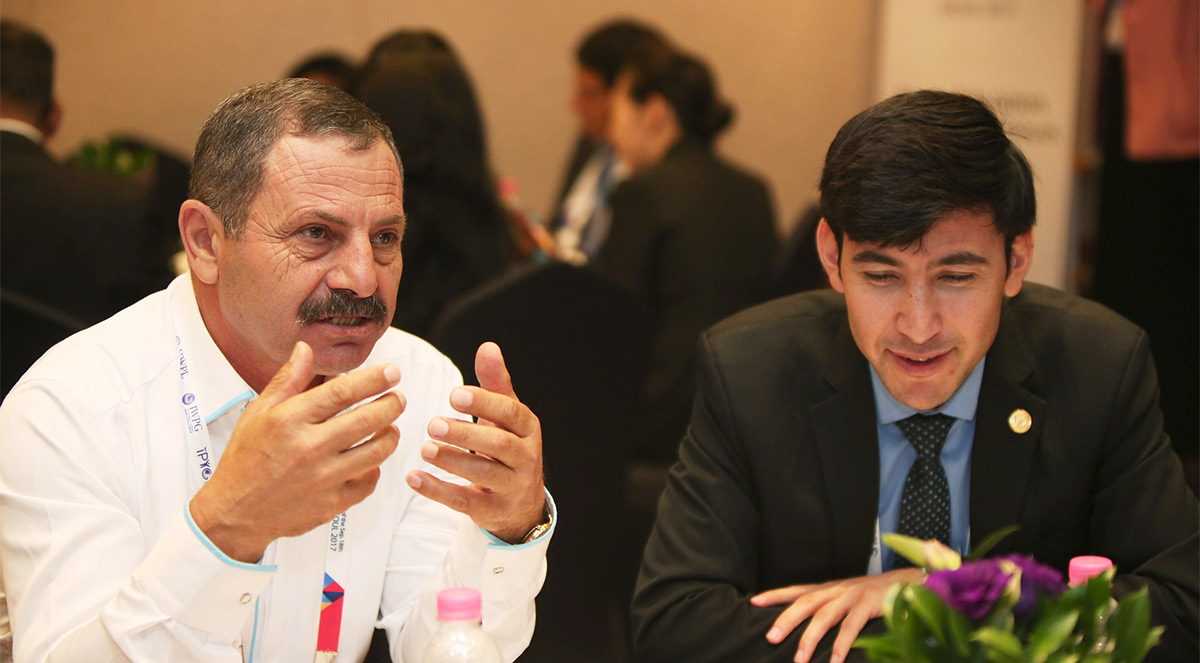
The Peace Education Development Forum Part II was primarily comprised of a round table group discussion for the development of the curriculum with given topics and various scenarios. Mrs. Nancy Roussopoulos, Former Principal at Camps Bay Preparatory School, Cape Town explained the fundamental purpose and necessity of the Value Integrated Education prior to the discussion.
“Value Integrated Education does not want to change the curriculum, but through integrating values INTO the existing curriculum, we want to see a value-based society emerge in which all citizens can work, learn and live in peace with one another – a society built on the understanding that life is sacred and that there is a fundamental need for order and respect within every society.”
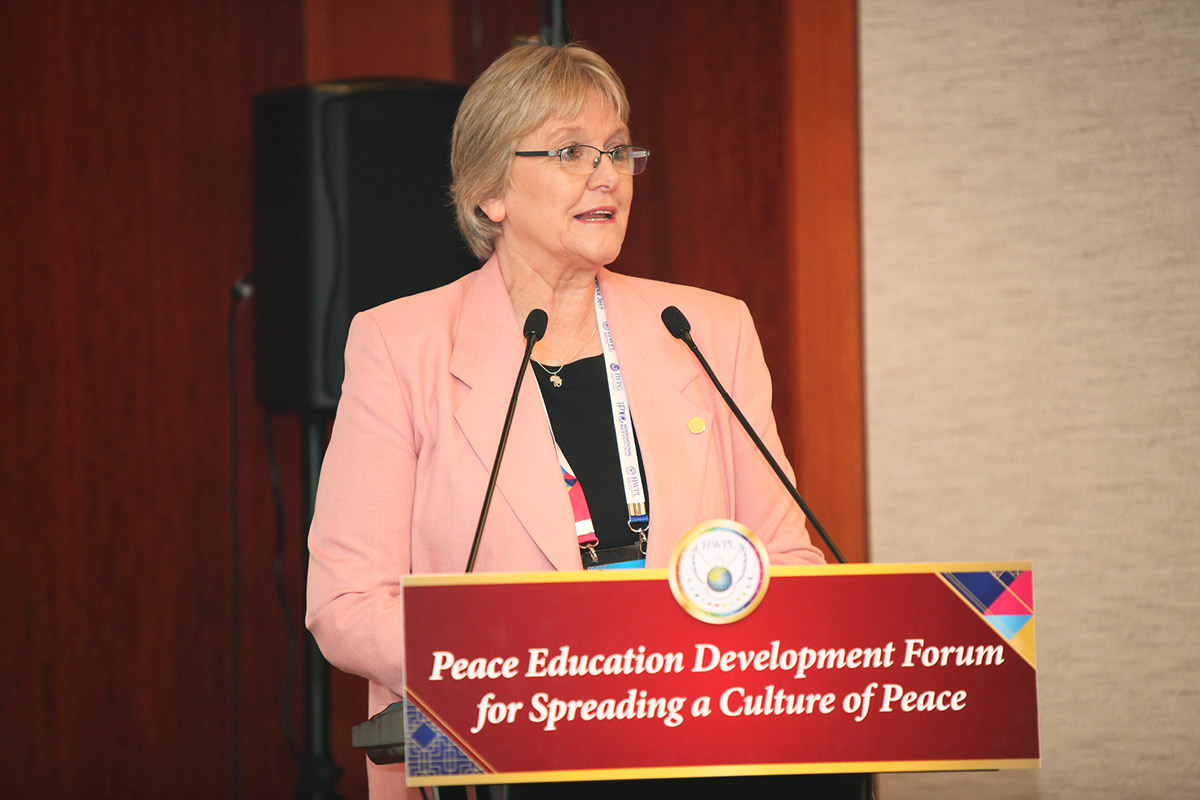
Mrs. Roussopoulos clarified that Value Integrated Education is simply what its name indicates and contains the 3 Core Values, including the ‘Sanctity of Life’, ‘Loyalty and Filial Piety’, ‘Co-Existence and Sustainability’, which we need to embrace in order to see a lasting and sustainable change come into our communities.
She then proposed this question to the educators, “How often have you helped them (your students) to understand what the expectations are, and what would be appropriate behavior in different situations outside of the school or classroom environment?” She went on to further challenge those in attendance by adding, “but surely, in the same way as we teach mathematics in a sequentially more intricate manner and do not expect the students to simply be able to take basic calculations and apply them to all other mathematically situations without some practice or guidance, so too we need to approach these values.”
Mrs. Roussopoulos stated that inherently knowing what would be the most appropriate action in every situation that we find ourselves in is not an automatic behavior, but rather it is a behavior that is either directly taught or indirectly learned from a role model. In other words, helping students to think of the way in which they can apply the peace values in different scenarios will prepare them for the big leap of integrating these values into their everyday lives.
She said that when teachers of all ages realize the need for teaching the core values on a daily, sustained basis and view it as a process instead of an event, “half the battle would have been won,” encouraging the audience, the educational professionals, to embrace the values first.
All curriculums of HWPL Peace Education, whose foundation lie in the Core Values of peace, include contents in which students may directly apply these concepts to themselves, their homes, schools, society, or even on an international level. This is done so that students may practice it every day and in doing so widen their perspectives. Therefore, the curriculum provides different situations to students so they may apply the values to their personal lives even when the teacher is not present.
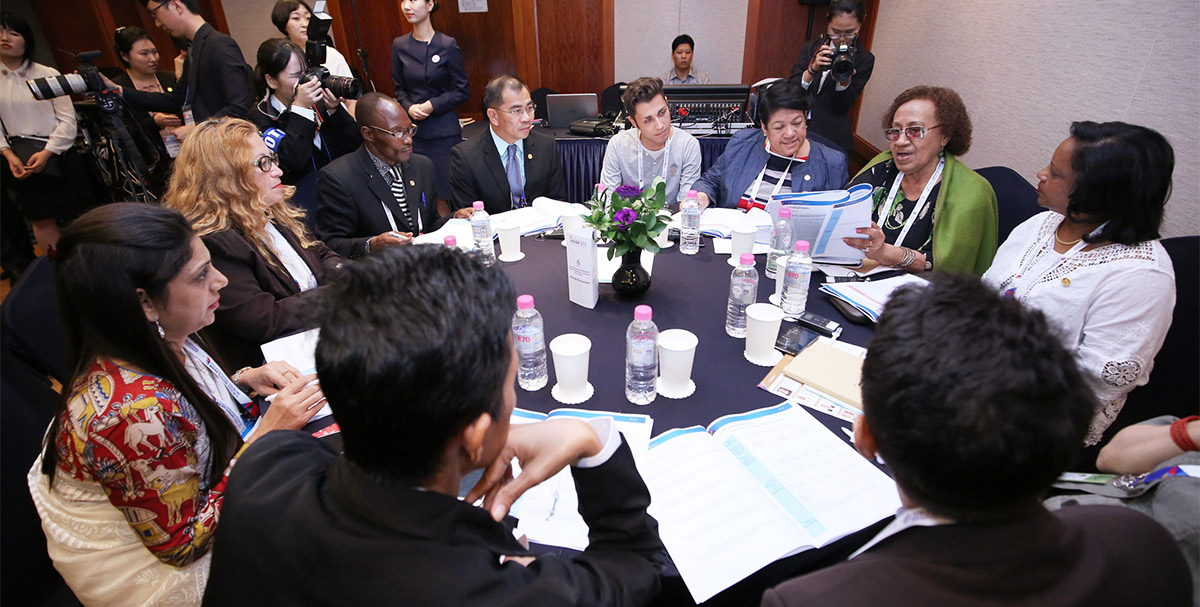
The lively round table discussion was held with the topic of what kind of values among the 3 a student can apply effectively in a way that will lead to action, as well as what would be the values necessary to emphasize in order to combat the direct or indirect violent environment students may be exposed to outside of class or school.
After each group discussion was concluded, members presented the core results and future application plans derived from the discussions.
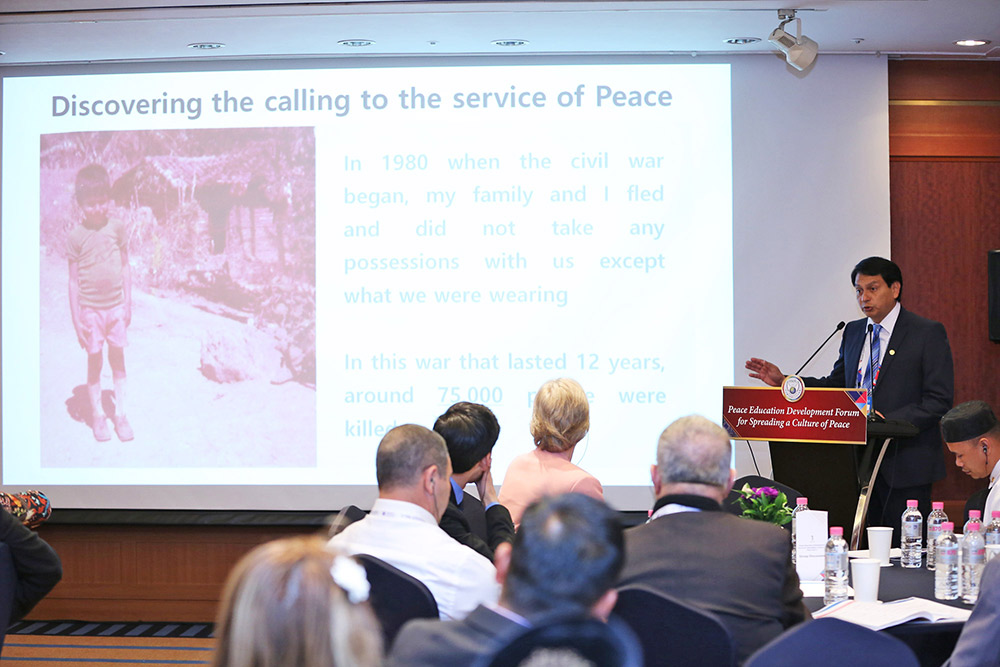
Prof. Juan Carlos Torres, Professor of Don Bosco University and Director of the Masters Program of Politics in the prevention of youth violence in the Culture of Peace, is currently implementing the HWPL value integrated education curriculum, which has proven that peace education plays a pivotal role in realizing a culture of peace. All participants could clearly see this idea through his personal cases.
“I consider that without peace education, the children and youth will not have the tools of cohabitation. It is necessary to have an integral education where it teaches the following values: respect for life, respect and tolerance for one another, love and goodness…it teaches them to fulfill social norms.”
He highlighted that “the purpose of these 3 Core Values is to really change the core of the person, meaning that it is not a superficial change. Because HWPL has created a tailored fit education where it isn’t a general class where students come and go but it is an education where it is made depending on the condition and situation of the students…and this is how the future generations will change through the HWPL Peace Education.”
Beyond nationality, culture, and ideology, all people have a duty to understand and appreciate the value of life, to play a role as a member of society that supports the order of the community, and to learn the essential values that will help them live together in harmony. HWPL Peace education is focused on enlightening students and citizens to help them be equipped with an ideology and mindset of peace that will give them all the tools necessary to lead the work of spreading a culture of peace.
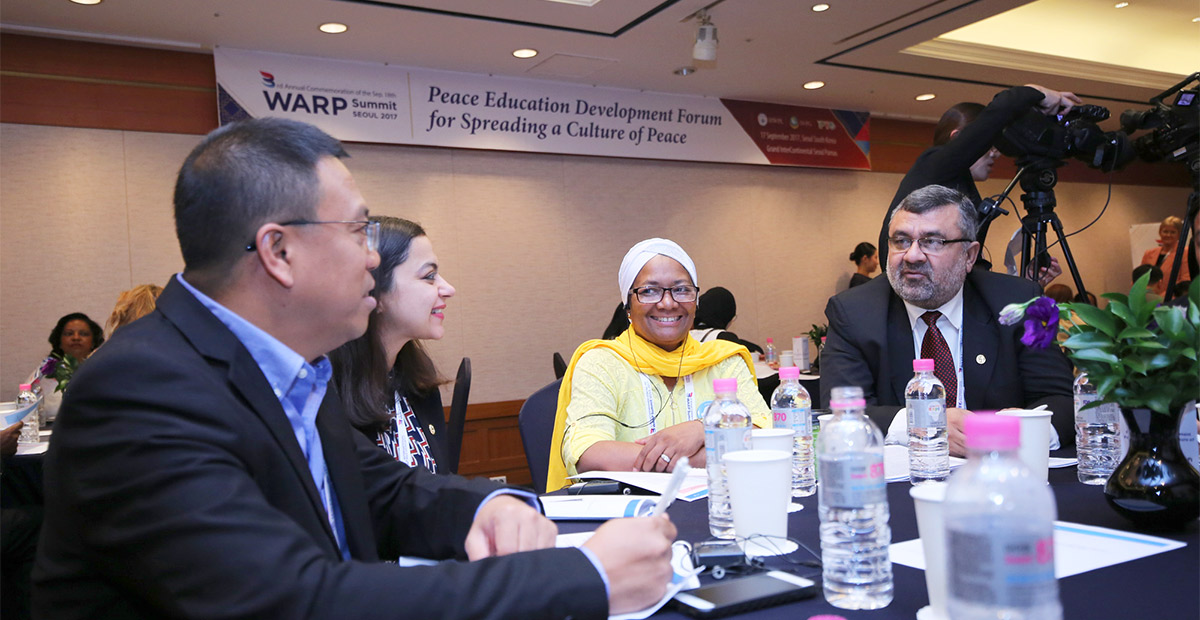
The Peace Education Development Forum recognized the importance of peace education for spreading a culture of peace and strengthened the cooperative solidarity for its advancement with a firm foundation in the core values of peace. Also, it gave impetus to the collaboration of schools and educators in advancing the curriculum and encouraged more schools and institutes to implement the process.
Educating the youth, who will become the leaders of the future generations, about the basic values of peace with practical applications in their daily lives will lay the groundwork for a new era of sustainable peace that can be passed down as a shining legacy. All participants at this conference were in agreement regarding the necessity of this type of education in today’s world that is still suffering from violent extremism and conflicts, and pledged to show their commitment and determination through active promotion of peace education worldwide.













